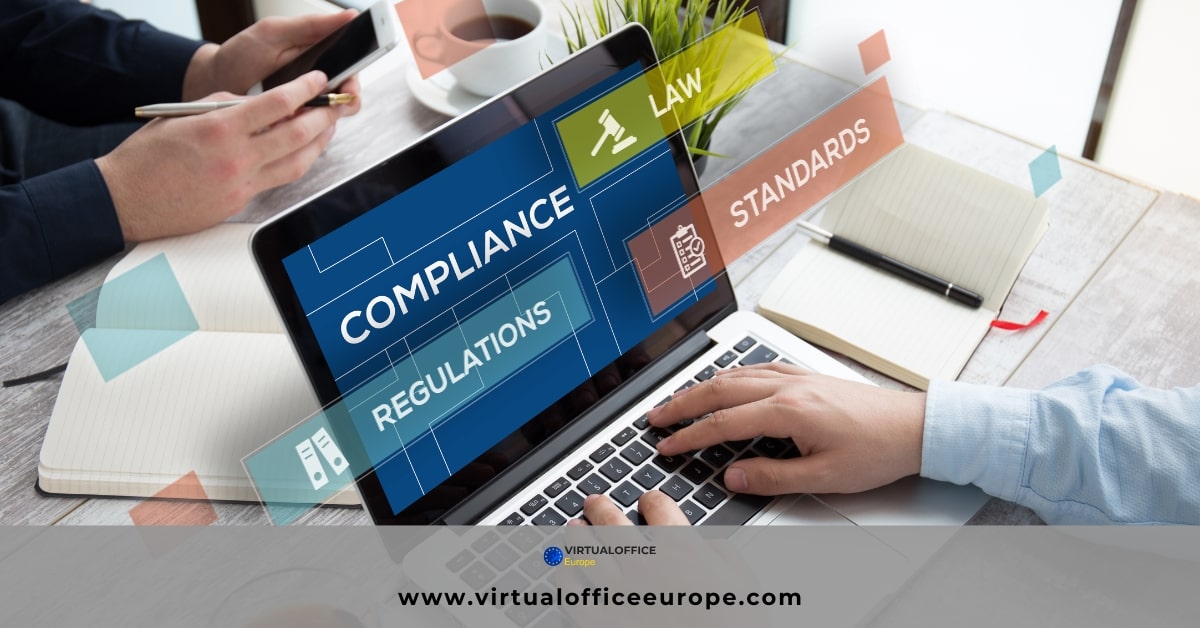In today’s dynamic business landscape, virtual offices have emerged as a revolutionary solution for companies across the globe. European companies, in particular, are leveraging virtual offices to streamline operations, reduce overhead costs, and enhance their global presence. This article delves into the success stories of some European companies thriving with this new working model, highlighting the benefits and strategies that have made this transition successful.
The Growth of Virtual Offices
This concept has gained significant traction in recent years. A virtual office provides businesses with a professional address, mail handling services, and access to meeting rooms without the need for a physical office space. This model offers unparalleled flexibility, allowing companies to operate remotely while maintaining a credible business presence.
Benefits of Virtual Offices for European Companies
Cost Efficiency:
Traditional office spaces in major European cities like London, Paris, and Berlin come with hefty price tags. A Virtual office eliminate the need for expensive leases, utilities, and maintenance, allowing companies to allocate resources more efficiently.
Flexibility and Scalability:
Virtual offices offer the flexibility to scale operations up or down based on business needs. Whether a startup or a well-established corporation, companies can easily adapt to changing market conditions without the constraints of a physical office.
Access to Global Talent:
With a virtual office, European companies can tap into a global talent pool. This model supports remote work, enabling businesses to hire the best talent regardless of geographic location.
Enhanced Productivity:
Virtual offices reduce commuting time and related stress, leading to improved productivity and work-life balance for employees. The focus shifts to output and efficiency rather than time spent in the office.
Environmental Impact:
By minimizing the need for physical office space, a virtual office contribute to a reduced carbon footprint. This aligns with the growing emphasis on sustainability in Europe.
Success Stories of European Companies using Virtual Offices
Spotify
Spotify, the Swedish audio streaming giant, has effectively utilized the virtual office model to manage its global operations. With teams distributed across various countries, Spotify leverages virtual offices to maintain a cohesive and collaborative work environment. The flexibility of virtual offices allows Spotify to innovate rapidly and stay ahead in the competitive music streaming industry.
Revolut
Revolut, a UK-based financial technology company, has embraced virtual offices to support its rapid growth. By adopting a remote-first approach, Revolut has expanded its services to over 35 countries without the constraints of physical offices. This strategy has not only reduced operational costs but also enabled Revolut to attract top-tier talent from around the world.
Zalando
Berlin-based fashion and technology company Zalando has integrated the virtual office concept into its operational model to enhance efficiency and scalability. The company employs a hybrid approach, combining virtual offices with physical hubs in strategic locations. This model allows Zalando to adapt to market trends quickly and maintain its position as a leader in the European fashion industry.
InVision
InVision, a design and prototyping platform, has its roots in the virtual office model. With a fully remote workforce, InVision has successfully built a collaborative and innovative culture. The company’s European operations benefit from this kind of setup, enabling seamless communication and project management across different time zones.
Strategies for Implementing Virtual Offices
To successfully transition to a virtual office model, European companies can adopt the following strategies:
Invest in Technology:
Reliable and secure communication tools, project management software, and collaboration platforms are essential for maintaining productivity in a virtual office setup. Companies should invest in technologies that facilitate seamless remote work.
Foster a Strong Company Culture:
Building a cohesive company culture is crucial for remote teams. Regular virtual meetings, team-building activities, and transparent communication help in nurturing a sense of belonging and collaboration among employees.
Prioritize Cybersecurity:
With the rise of remote work, cybersecurity becomes paramount. Companies must implement robust security measures to protect sensitive data and ensure compliance with regulations such as GDPR.
Provide Support and Training:
Employees transitioning to a virtual office model may require training and support to adapt to new tools and workflows. Offering resources and guidance can help in smoothing the transition and maintaining productivity.
Monitor Performance and Feedback:
Regularly assessing performance and gathering feedback from employees can help identify areas for improvement. This proactive approach ensures that the virtual office model remains effective and responsive to the needs of the business.
The Future of Virtual Offices in Europe
The success stories of Spotify, Revolut, Zalando, and InVision demonstrate the transformative potential of virtual offices. As European companies continue to embrace this model, the business landscape is likely to see further innovation and efficiency gains. The flexibility, cost savings, and access to global talent offered by virtual offices make them an attractive option for businesses aiming to stay competitive in a rapidly evolving market.
Virtual Offices as a Game Changer
Virtual offices have proven to be a game-changer for European companies, providing a flexible and cost-effective solution for managing operations. The success stories highlighted in this article showcase how businesses can leverage virtual offices to enhance productivity, attract top talent, and drive growth. As the trend towards remote work continues to gain momentum, virtual offices are set to play a pivotal role in shaping the future of business in Europe and beyond.
By embracing this new type of model, European companies can not only thrive in the present but also position themselves for sustained success in the future.








